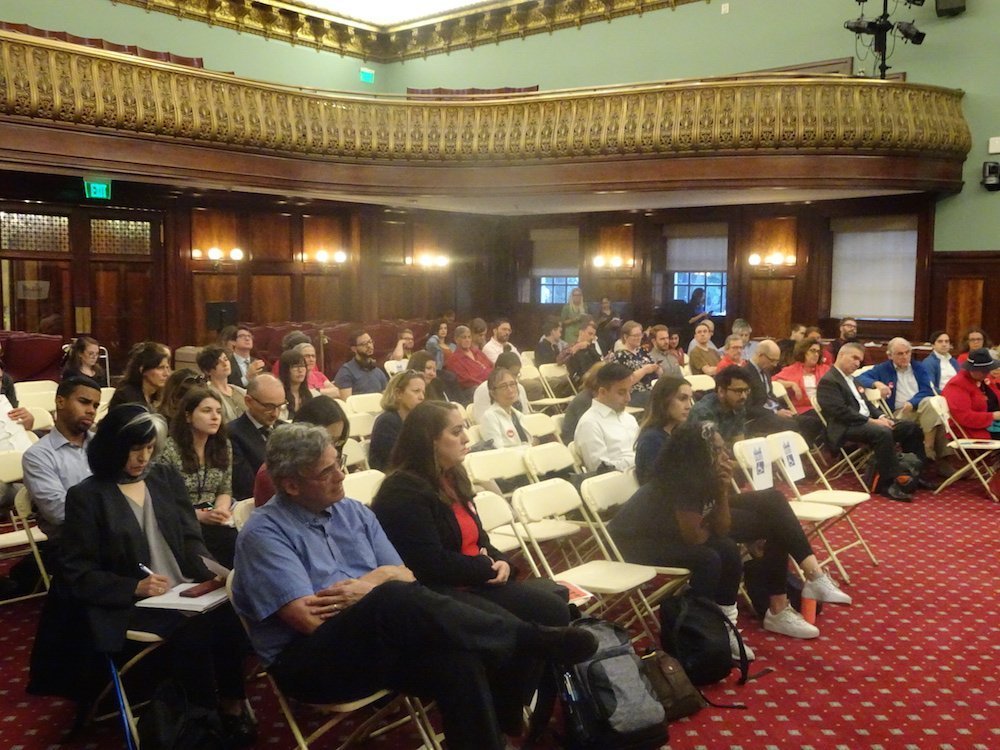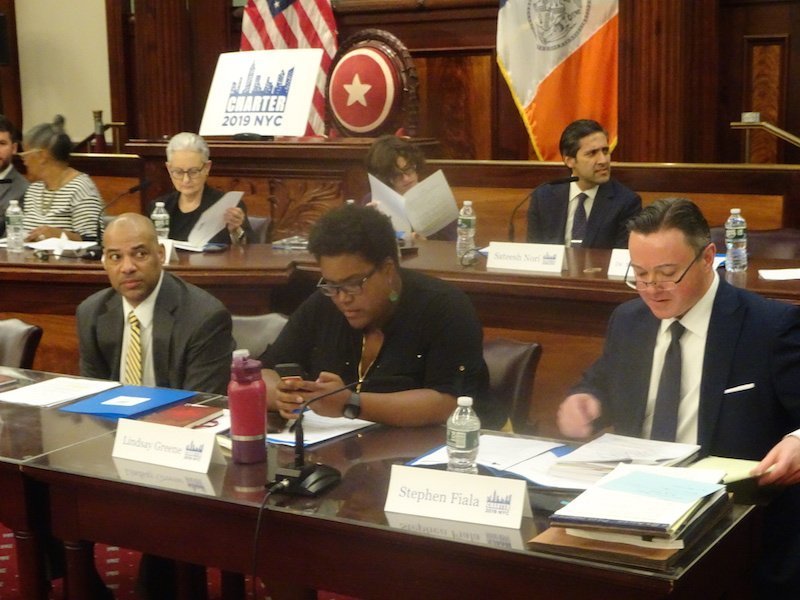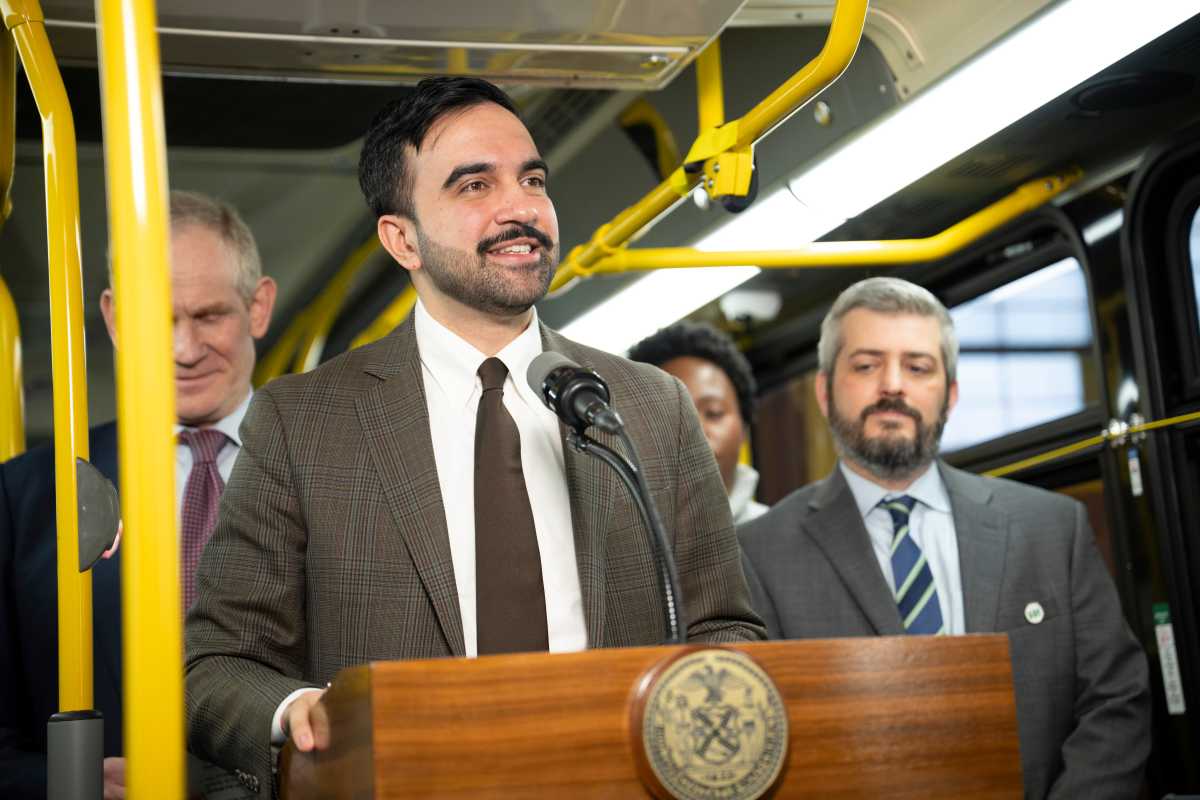The New York City Charter Revision Commission this week convened at City Hall to discuss a bold new proposal – one that would implement ranked-choice voting (RCV) in the City.
Present at the meeting were Commission Chair Gail Benjamin and Commission Members Sal Albanese, Lilliam Barrios-Paoli, Lisette Camilo, James Caras, Eduardo Cordero, Sr., Stephen J. Fiala, Paula Gavin, Alison Hirsch, Clinton Miller, Lindsay Greene, Sateesh Nori, Merryl H. Tisch, James Vacca and Carl Weisbrod.
A total of 18 proposals were discussed and voted on at the meeting. The votes marked the first step in determining whether the proposals will be included on the ballot in an upcoming referendum this November.
Proposal #1 would implement a system of RCV for municipal primary and special elections, meaning that instead of choosing one candidate, voters would be allowed to rank their top five candidates in order of preference. Candidates would then receive points based on how highly they were ranked on each voter’s list (if at all), and the candidate with the most would be declared the winner.
While almost all of the commissioners supported the idea of RCV, they were split on whether the proposal should be expanded to include general elections.
“What I’d really appreciate is someone explaining to me why [general elections are excluded],” said Fiala. “I’ve looked at this backwards and forwards, and I can’t for the life of me figure out why we would do it in one part and not another. Maybe I’m a little simple-minded, but for me, what’s good for the goose is good for the gander. If it’s good on one, it’s good on the other.”
Fiala proposed amending the proposal so that general elections would be subject to the same change. The amendment was met with support from Albanese, who said that the proposal would be a “half-measure” if it didn’t include general elections.

Weisbrod, on the other hand, voiced support for the proposal as written but not the amendment. He pointed out that the vast majority of the testimony they received was in favor of implementing RCV, but that there was a “split” between those who wanted it applied universally and those who wanted to limit it to primary and special elections.
“The organizations that testified in favor of ranked-choice voting – very, very respectable organizations – largely, I think, as I recall, limited their recommendations to primary and special elections,” said Weisbrod. “I think if we see that it works in primary and special elections, we always have the ability – another charter commission in the future certainly has the ability to expand it with safeguards.”
Greene was similarly tentative about applying it to general elections.
“The real benefit of ranked-choice voting is that it helps you get to a better way for people to sort and choose multiple people that they like, in the stages where you’re really trying to, for lack of a better term, funnel people, so that you have a smaller number of candidates on which to focus in a general election,” said Greene. “I don’t think you need to take that step for the general election, where by default you have a fewer number of people amongst which to choose.”
The only commissioner who opposed the idea altogether was Tisch, who claimed that a ranked-choice voting system would discourage candidates from taking firm, defined stances on controversial issues.
“Our American system of democracy has always been predicated on people casting their vote for the candidate who they believe will do the best job. In turn, that forces candidates to seek to persuade voters to make a singular and sometimes really difficult choice,” said Tisch. “Ranked choice voting is a well-intentioned experiment that could wreak uncertain and perhaps complicated consequences. For example, if we enacted such a system, it could well incentivize candidates not to take clear issue positions, preferring to play to the audience for being everyone’s second choice by offending as few people as possible.”
After the discussion, both the proposal and Fiala’s proposed amendment were called to vote. The amendment was struck down, narrowly losing the vote 6-8, but the original proposal passed with overwhelming support, 13-1, as Tisch was the only one who voted “nay”.
A ballot question for the proposal will be drafted by commission staff in the coming weeks. On July 24, the Charter Revision Commission will vote on whether to accept that language for the November referendum ballot.










